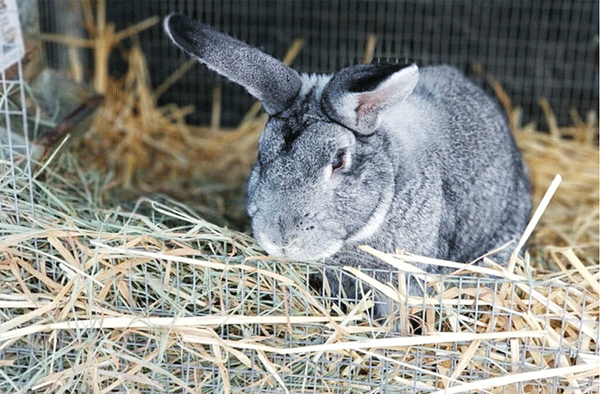
BY MTHANDAZO NYONI THE Zimbabwe Commercial Rabbit Breeders Association (Zicorba) has boosted its breeding stock by more than 1 000 pure breeds over the past 10 months, laying a strong foundation for sustained growth of the country’s cuniculture sector.
The association’s vice-president Siphosethu Ncube-Moyo said an additional 6 000 breeders would be realised from the ongoing national rabbit pure breed roll-out programme, which is being bankrolled by one of the association’s corporate members, Raymeg Holdings.
“We are very encouraged by the progress made since we first launched the pure rabbit breed roll-out programme about 10 months ago with an initial stock of 180 imported rabbits,” she said in the organisation’s newsletter.
“This is part of our strategy of ensuring that our rabbit farmers have adequate quality breeding stock to produce unencumbered,” Ncube-Moyo said.
Under the pure breed roll-out programme, Zicorba members receive breeding stock which they pass on to the next member after they kindle twice.
Tapiwa Nyagwambo, a Zicorba member based in Mashonaland East province and a beneficiary of the pure breed roll-out programme, said he was “very impressed” with the performance of pure breeds versus local hybrids.
“At personal level, I believe the programme is a huge success as I received 19 kits from three New Zealand White does from their first kindling. The does have shown a very good mothering ability after attaining a 99,9% survival rate at weaning and the weight gains are remarkably excellent,” he said.
“The most noticeable advantage that I saw in comparison with the hybrid rabbits is their high feed to meat conversion ratio which was proven by weekly average weight gains of 150 grammes reaching about 1,8kg to 2kg at eight weeks for weaners, which is very good for meat rabbits and enabling the breeder to sell at the premium age,” Nyagwambo added.
- Chamisa under fire over US$120K donation
- Mavhunga puts DeMbare into Chibuku quarterfinals
- Pension funds bet on Cabora Bassa oilfields
- Councils defy govt fire tender directive
Keep Reading
Munyaradzi Chioto, a Bulawayo-based rabbit producer said: “The New Zealand breeds that I received have a high reproductive rate compared to native breeds that I have been rearing. In the past, I used to specialise in native breeds which took six months to grow, which were very costly. The four pure breeds I received were a good boost to my rabbitry. With the use of the pure breed buck, we have managed to get 65 kits which are growing fast like never before.”
Harare-based rabbit farmer and Zicorba member, Neil Francisco, said: “The pure breed programme is a real success. I received New Zealand White pure breeds in February, I started breeding them in April, and to date I have 13 kits from three does. In August, I expect more kits before I pass on the initial breeding stock to the next farmer.”
Anna Mary Gapa of Gokwe said: “The pure breed roll-out programme is a huge success. My does kindled 20 kits in May 2022. They are so healthy and growing vigorously with all their traits of purity. My intension is to phase out all my small breeds and replace them with these pure breeds.”
Another beneficiary of the pure breed roll-out programme Kingston Rakupeni based in Manicaland, echoed the same sentiments.
“I managed to successfully breed the pure breeds that I received in September last year and got 10 live kits from the two does. With less difficulties, I raised these kits to maturity and they commenced breeding in March 2022 with great success. I also managed to raise another 10 live kits and handed the initial breeding stock over to another farmer,” Rakupeni said.
Rakupeni encouraged all beneficiaries of the programme to ensure that proper care is given to the breeding stock so that as many farmers as possible could benefit.
Rabbit farming has significant potential to improve food security and nutrition in developing countries.
Global rabbit production is currently estimated at more than one million tonnes per year, according to Food Agriculture Organisation.
Globally, rabbit meat is expected to expand by 2,3% compound annual growth rate to reach 1,8 million tonnes by the end of 2025, according to IndexBox.
- Follow us on Twitter@NewsDayZimbabwe











